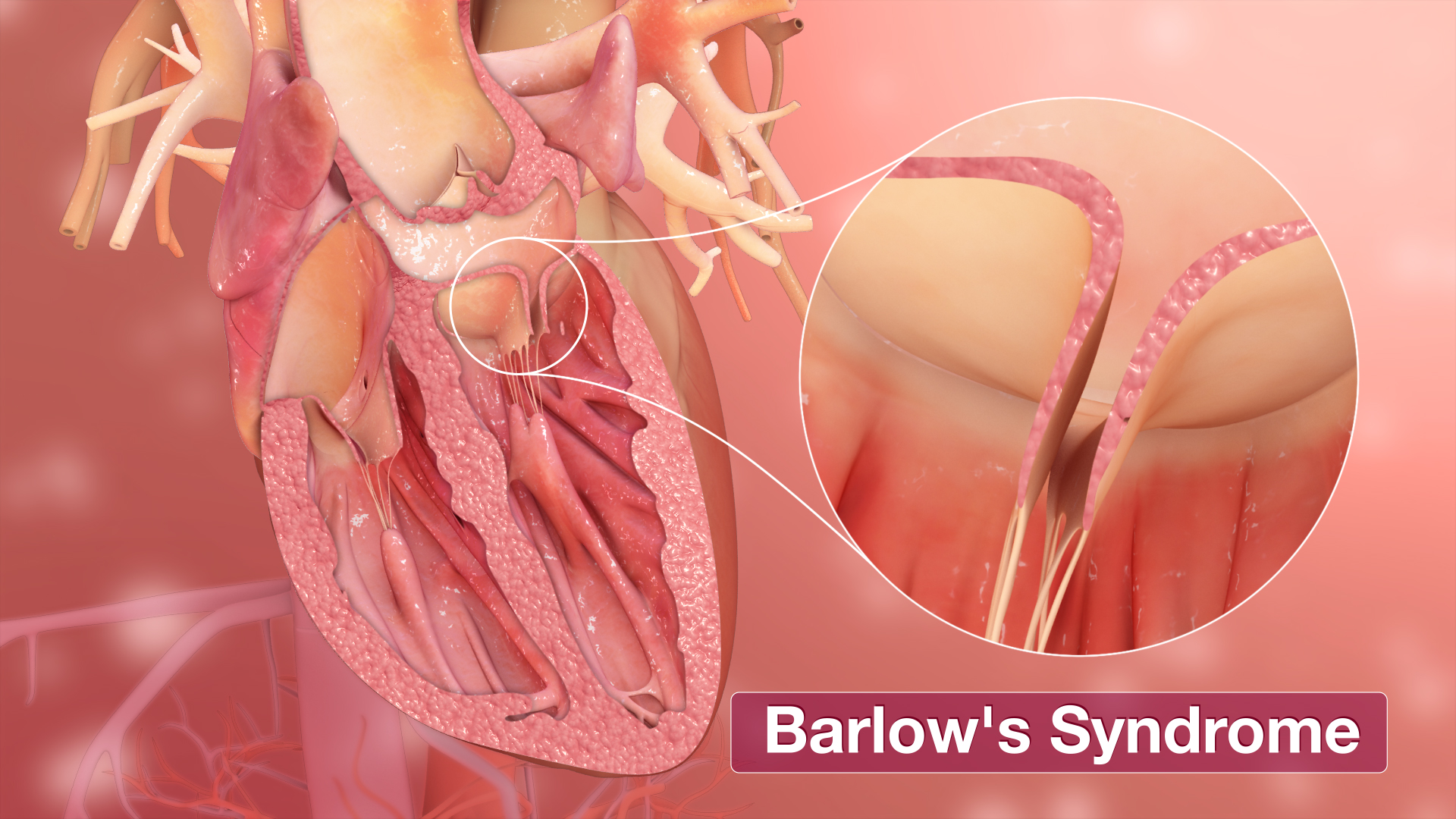Barlow's syndrome is one of the most common heart valve abnormalities in which mitral valve prolapses. This is a condition where two-valves of the mitral valve do not smoothly close instead, they bulge in an upward direction into the left atrium. In rare cases, the prolapsed valve allows a small quantity of blood to leak backward, which can cause a heart murmur. Mitral valve prolapse is also famous as click murmur syndrome.
Most of the time this abnormality shows no symptoms, thus their health is not affected and no treatment is required. However, in some cases, this syndrome can lead to certain conditions like fatigue, palpitations, or both. Palpitations can be detected during heart examination and can be confirmed by echocardiogram.

Symptoms
Although Barlow's syndrome is a lifelong abnormality, rarely, it has any symptoms. Generally, after diagnosis, people are surprised to learn that they have a heart condition.
If there are any symptoms, it will be mostly because the blood in the heart would be leaking backward, which is called regurgitation. However, the symptoms largely vary from patient to patient, but generally, they are-
- An irregular heartbeat (arrhythmia)
- Chest pain - sometimes chest pains may be excruciating but it never leads to a heart attack.
- Breathlessness during exertion
- Palpitations
- Fatigue or dizziness
- Panic and anxiety
Causes
When a heart functions properly, the mitral valve shuts completely while contracting the left ventricle thus preventing the backward flow of blood. But in some people, the valve leaflet generates some extra tissue which is formed as a bulging and not allowing the valve to close tightly. It is the condition when a small quantity of blood leaks backward and causes a mitral valve prolapse, i.e. Barlow's syndrome. A very common cause of Barlow's syndrome is abnormally stretchy valve leaflets, called myxomatous valve disease. Barlow's syndrome can be genetic sometimes and in other cases, it can develop by other health issues. A few common risk factors leading to Barlow's syndrome is
- Marfan syndrome
- Magnesium deficiency
- Family history of Barlow’s syndrome
- Alcohol
- Caffeine
- Age (generally over 50)
Treatment
Barlow's syndrome generally doesn't cause any problem, thus treatment is not needed in most of the cases. In rare cases, when people develop severe mitral prolapse, it can lead to abnormal heartbeats called arrhythmias. That may become life-threatening gradually. In such rare cases, surgery to repair or completely replace the valve can be a solution.
If a person is continuously showing the symptoms of mitral valve prolapse and still it is not detected in echocardiogram, then hardly there is any danger. But still, as a precautionary measure, a person can adopt few lifestyle changes like
- Exercises
- Avoiding alcohol, caffeine or any kind of stimulant
- Reducing stress
People who suffer regular palpitations or rapid heartbeat called tachycardia are generally advised to take medications which can reduce the heart rate.
Disclaimer: The information in no way constitutes, or should be construed as medical advice. Nor is the above article an endorsement of any research findings discussed in the article an endorsement for any of the source publications.








